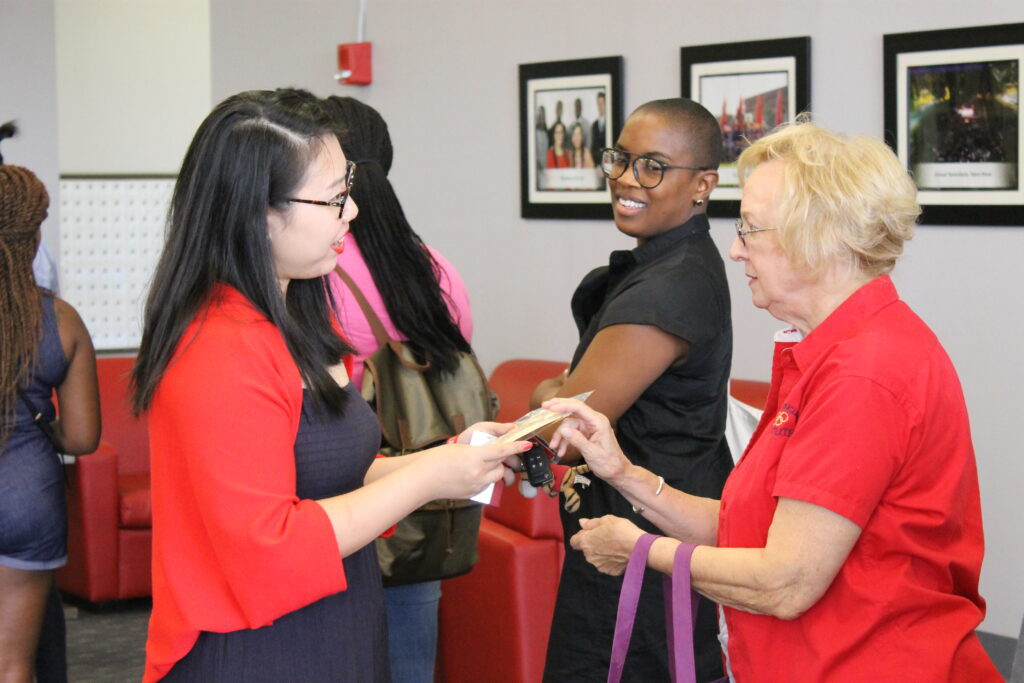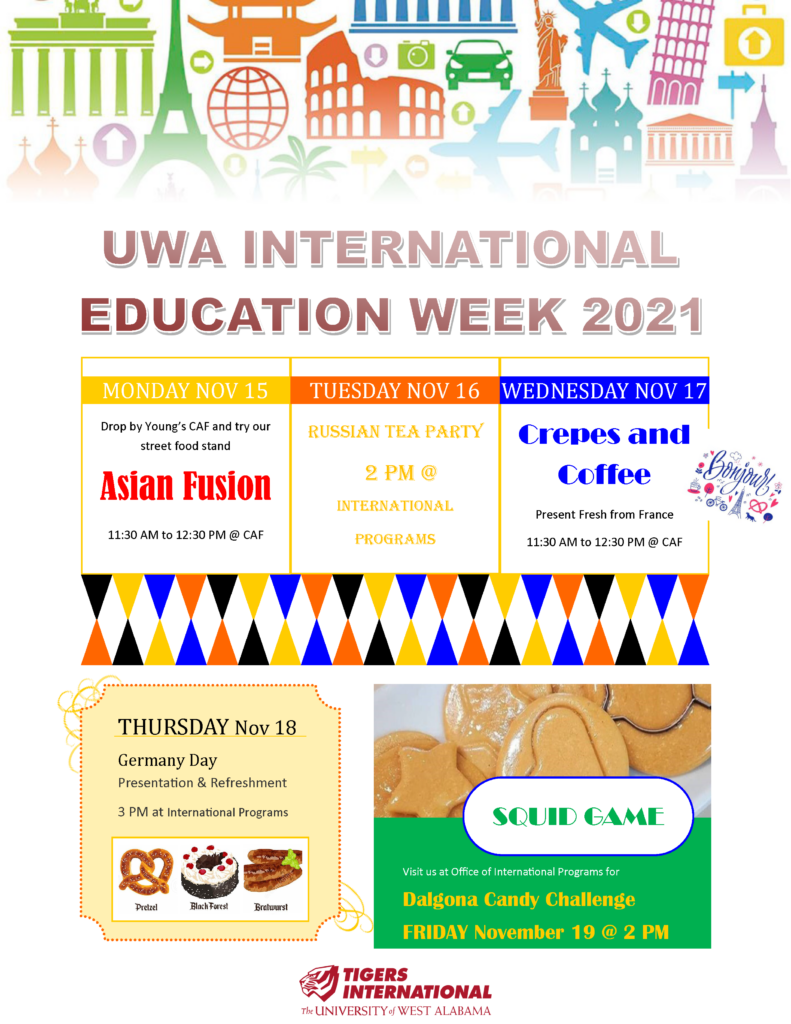International Education Week highlights multicultural events on UWA campus
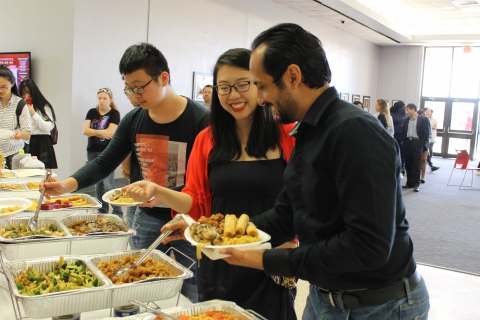
Story: Phillip Tutor
Campus dining options at the University of West Alabama don’t normally include Samovar-brewed Russian teas, dalgona candies from Korea, French crepes or street-style Asian fusion delicacies.
But that changes briefly next week when the UWA Office of International Programs hosts the university’s first International Education Week. Over five days, international student volunteers will present programs that will educate the campus community about their nations’ cultures. Sampling the tastes and flavors from other continents are part of the fun.
“The most important part of this event is to raise awareness of the multiculturalism and diversity on our campus,” said Meng Xu , an international admission counselor in UWA’s Office of International Programs. “That’s the biggest thing — to make sure our campus is aware and also appreciates all of the diversity we have brought to the campus.”
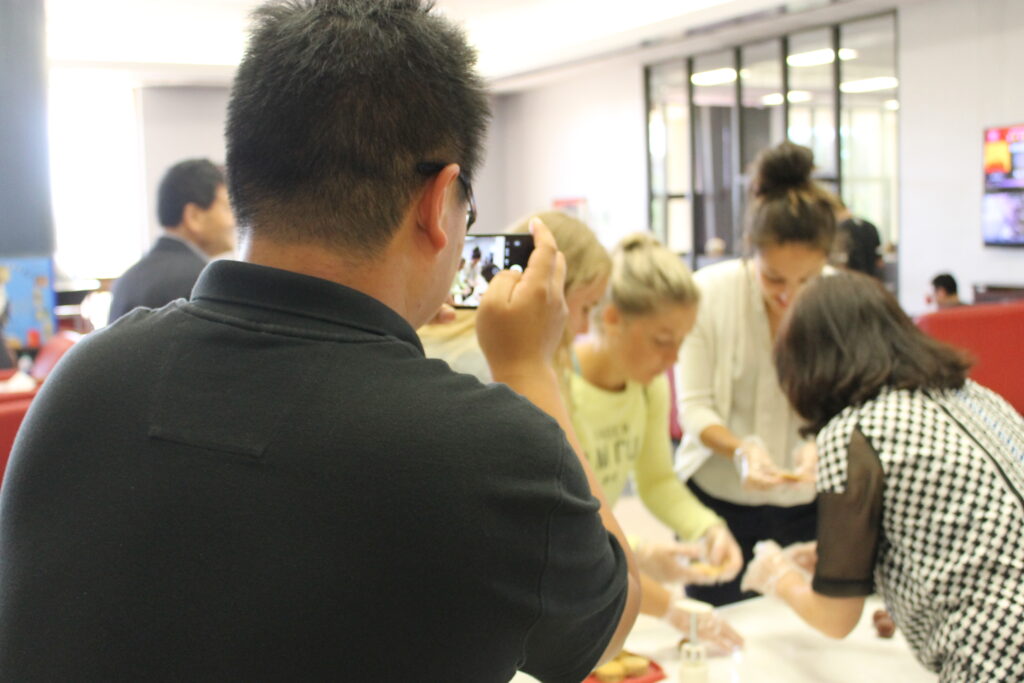
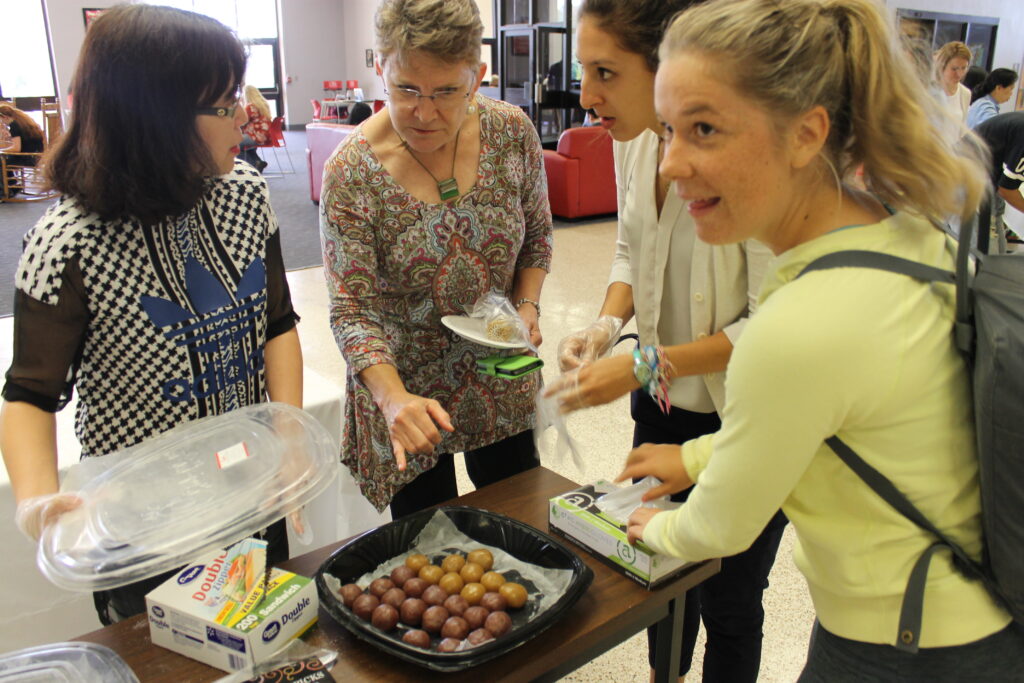
International Education Week is a long-standing joint initiative of the U.S. Department of Education and the U.S. State Department that features events on myriad campuses across the nation. The celebration, according to the State Department, “is part of our efforts to promote programs that prepare Americans for a global environment and attract future leaders from abroad to study, learn, and exchange experiences.”
Xu — familiarly known across campus as Mrs. Vicky — and her office colleagues have long wanted to host International Education Week events at UWA, she said, but the department’s travel schedule made it impossible. Until now.
Though Dr. Mark Davis , director of UWA’s Office of International Programs, has been away for a portion of the fall recruiting students, Xu is on campus this semester. That alteration in the department’s usually hectic calendar has allowed Xu to finally arrange for UWA’s first week-long international celebration.
Next week, each day will feature a different international-themed event on campus. The events, which are free to attend, will be held either at Young Hall Cafeteria (the “CAF”) or the International House.
Monday: Asian Fusion street-food stand, 11:30 a.m. to 12:30 p.m., CAF.
Tuesday: Russian tea party, 2 p.m., International House.
Wednesday: Crepes and Coffee (France), 11:30 a.m. to 12:30 p.m., CAF.
Thursday: German day (presentations and refreshments), 1 p.m., International House.
Friday: Tap into Scotland and Ireland (mini-session about culture and history, with coffee and tea), 10 a.m. to 11 a.m., International House.
Friday: Dalgona candy challenge (Korea), 2 p.m., International House.
Choosing which nations’ cultures to feature, Xu said, was based less on preference and more on which students offered to help. In this case, manpower mattered.
Inspired by the foreign-born students who gather on campus to cook familiar meals and socialize, Xu began asking for their assistance. A student from France, for example, “has been hanging out at the International House for coffee break, and they have their own parties. Some of the students can’t cook in the dorm, so some come over and hang out over the weekend,” Xu said.
Enough volunteers readily agreed to share their food and native cultures that Xu planned a week of events with themes from Asia, Russia, Germany, France and Korea.
“That’s how every little piece is falling into the right place,” she said.
International students represent a sliver of the university’s student population, according to UWA enrollment data. Forty-nine of the university’s 1,320 on-campus students were foreign-born in the fall of 2019.
Nevertheless, UWA’s student body features a growing array of international students that makes it common to hear a variety of languages on campus. Xu hopes to make International Education Week an annual event at UWA.
“Our international students can find a home (here) and be at ease on our campus,” Xu said. “They can get warm and nice interactions and feel like they are at home. (They find out that) it’s OK to share their culture, and we welcome them to share the food, their country and their language with us.”
